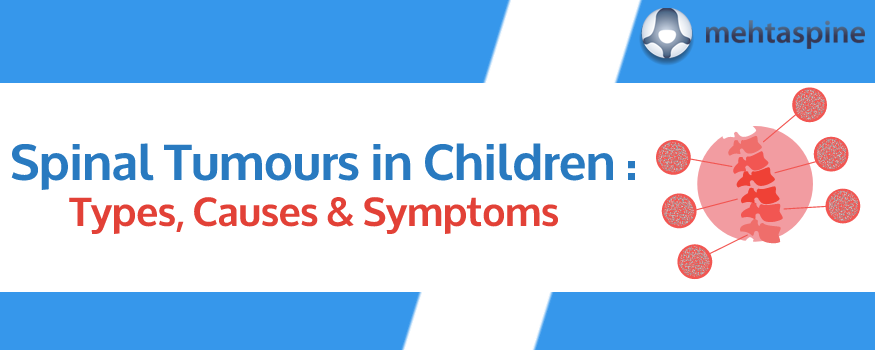Spinal Tumours in Children: Types, Causes & Symptoms
A Spinal tumour is a mass of abnormal tissue that grows in, or near the spinal column. These solid tumours can be malignant (cancerous) or benign (non-cancerous). Either way, these tumours grow overtime and put pressure on the spine leading to a variety of health problems and hence require immediate treatment from an expert Spine Specialist in the UK.
In this blog, we cover basic details about spinal cord tumours – types, symptoms, and then guide you to an expert Children and Adult Spinal Surgeon in the UK. Read on:
Types of Spinal Tumours:
These abnormal growth tissues that arise directly in the spinal region are called primary tumours. And the tumours that grow due to the spread of tumours cells from other organs are called metastatic tumours or secondary tumours. While they are classified as primary and secondary spinal tumours based on the type of growth, the primary spinal tumours are again categorised based on where they grow. Over 90% of the spinal tumours grow in the cells that are adjacent to or near to the spinal cord, the most common is type are:
- Meningioma: This slow-growing tumour can arise in the meninges, the layer that protectively lines the brain and spinal cord. Meningioma tumours most commonly are brain tumours and only a small percentage are located on the spine. 95% of these tumours are benign, grow very slowly and generally occur in elder adults (50-70). The most commonly develop in the middle and upper spine.
- Acoustic neuroma: Slow growing tumours that develop on the vestibular nerve which leads to the brain from the inner ear. Hearing loss, unsteadiness, numb face, ringing in the ear are some of the unique signs of this tumour.
- Neurofibroma: Neurofibromas are the type of tumours that develop on the nerve sheaths, the insulation layer that protects the nerve fibres. They tend to arise on nerve roots that leave the spinal cord and branch out to the other parts of the body. Though 90-95% of them are benign, these tumours can compress the spinal nerves or column leading to other health problems.
- Ependymoma: Ependymoma is a rare type of cancerous tumour that develops directly in the brain or spinal cord, unlike other tumours which grow near the spine or brain and then spread to these regions.
Causes & Symptoms of Spinal Tumours:
Researchers and physicians are yet to know the solid cause of spinal tumours. In general, it has been known that patients with a prior history of cancer are far more at risk than the general population. Other causes include – exposure to radiation or hazardous materials, immune system disorders defective genes or viruses.
Symptoms experienced by the patient vary based on the type of spinal tumour. In general, chronic back pain. Sciatica, spinal deformities, numbness, difficulty in walking, tingling partial paralysis and fever are common symptoms are experienced by the patients.
How common are spinal tumours in children?
There seem to be no official statistics on the number of estimated spinal tumour cases in the UK. However malignant spinal tumours are estimated to account for more than 25% of cancers in the UK, the second most common cancer in children after leukaemia.
Spinal tumours are less common than brain tumours and are identified generally in children between 10 to 16 years of age. And among these tumours, secondary tumours are more common than primary spinal cord tumours in children. As for the US, fewer than 6 children in around 100,000 and teens are diagnosed with primary spinal tumours. And metastatic tumours which are more common affect more than 10,000 men and women every year.
Though spinal tumours in children are rare, most patients experience a mixed set of symptoms that include back pain, numbness which are pretty common and hence a diagnosis used to take a long time when compared to other tumours.
Given they are slow-growing tumours, it is always wise to consult an expert spine specialist as soon as possible. If you live in and around the UK and are looking for a Spine Surgeon in the UK, you can consult Children and Adult Spinal Surgeon Mr Jwalant S. Mehta here: Clinical secretary :Samantha Leavy +44 785 021 1939


